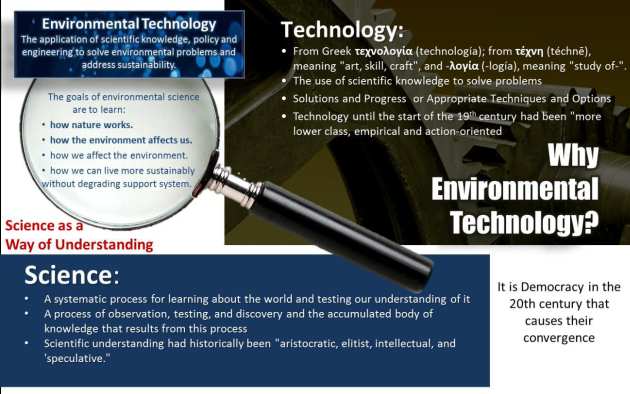The MSc in Environmental Technology provides the highest standard of knowledge and skills development for environmental specialists. Through the course students acquire a diverse range of discipline-specific problem-solving frameworks for tackling contemporary environmental issues. A major emphasis of the course is on the way that environments function and on the compatible tools, alternative technologies and policies for sustainable environmental management. MSc Candidates also learn to appreciate that successful projects depend, at least in part, on belonging to a network of experts aiming to advance personal and collective environmental goals. We emphasise a friendly and supportive learning environment.
Our course combines the natural and social sciences, engineering and business in a truly interdisciplinary manner, providing a foundation for graduates to demonstrate their ability to identify and resolve environmental and sustainability issues in a holistic way. This broad training is followed by an in-depth education in many specialised areas, maintaining the course's interdisciplinary nature. The specialist options in the second term are designed to cater for a variety of individual interests and career requirements.
 Interdisciplinarity is embedded in the design of the course since its inception, and is even captured on its title, where the use of term TECHNOLOGY refers to its original meaning, translated for our course into: The application of scientific knowledge, policy and engineering to solve environmental problems and address sustainability (also see here for more detail).
Interdisciplinarity is embedded in the design of the course since its inception, and is even captured on its title, where the use of term TECHNOLOGY refers to its original meaning, translated for our course into: The application of scientific knowledge, policy and engineering to solve environmental problems and address sustainability (also see here for more detail).
The course provides students with different options to build on their undergraduate degree, by allowing them to specialise in an area of particular interest, convert undergraduate knowledge to a different setting, differentiate for the job market and learn specific techniques and tools for research and management.
Building on Imperial’s environmental world-class research portfolio, dedicated teaching staff to coordinate the interdisciplinary nature of our course and very strong links with industry, business and regulators. We pride ourselves on the quality of the service we provide to students, science and the society, and our excellence in delivering the valuable interaction between scientific/technological training and industrial experience.
The programme is currently only offered as a full-time (Mode J9UF) one year course or as a specificpart-time (J9UF24) two year course with an industrial placement (Water Management Option), and both lead to the MSc degree and the Diploma of Imperial College (DIC). More information is provided in the Course Handbookand Blackboard.
Students complete the Core Course in the first term (October-December) which comprises of six and a half taught modules, a small group seminar series, with continuous course work assessment. Environmental policy seminars conducted by external speakers also occur throughout the first and second terms.
In the Option Course in the second term (January-March) students complete their selected option based on their decision at course application. The following options are offered: Business and the Environment; Ecological Management; Energy Policy; Environmental Analysis and Assessment; Environmental Economics and Policy; Global Environmental Change and Policy; Pollution Management; and Water Management.
Written examinations are held in December (Core Course) and at the end of the spring term (Option Course).
The remainder of the course comprises an individual (18 week) research project including an interim-viva assessed within the Department, a thesis and an executive summary also assessed.
The Course specification is available to download for further information.
The MSc course is under the overall direction of Dr Mike Tennant, Lecturer in Business and Environment.